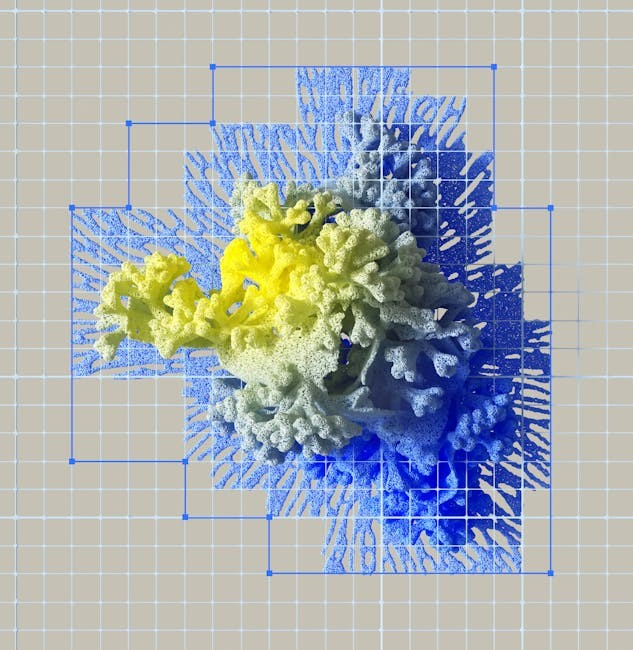Welcome to the EverQuest Research Guide, your comprehensive resource for mastering the Spell Research tradeskill․ This guide is essential for non-priest casters, detailing how to craft spells, tomes, and scrolls․ Discover materials, recipes, and strategies for progression servers, helping you elevate your research skill from 0 to 300 and beyond․ Whether you’re a mage, enchanter, or necromancer, this guide provides the insights and tools needed to succeed in creating powerful spells and advancing your character․
1․1 What is Spell Research in EverQuest?
Spell Research is a tradeskill in EverQuest that enables players, particularly non-priest casters, to create spells, scrolls, and tomes that are otherwise unobtainable or extremely rare․ It involves finding and refining drops from various mobs across hundreds of zones, which are then combined to craft desired spells․ The skill begins at level 16 and is level-restricted, with a max skill cap of (Level ― 15) x 5․ This system is crucial for researchers aiming to acquire powerful spells and enhance their gameplay experience․
1․2 Importance of Research for Non-Priest Casters
Spell Research is crucial for non-priest casters, as it allows them to craft spells, scrolls, and tomes they otherwise cannot obtain․ This tradeskill provides a competitive edge, enabling players to acquire rare and powerful spells․ By mastering Spell Research, non-priest casters can enhance their gameplay, ensuring their characters remain versatile and effective in various combat and strategic scenarios․ This ability is essential for their progression and effectiveness in the game․
1․3 Overview of the Research Tradeskill
The Research tradeskill in EverQuest enables players to craft spells, scrolls, and tomes by combining various magical materials․ This skill is essential for spellcasters, allowing them to create powerful spells and items․ To perform research, players need specific components, such as spell scrolls, ink, and quills․ The quality of the final item depends on the player’s research skill level and the materials used․ Higher skill levels unlock more complex recipes, making research a valuable and rewarding tradeskill for spellcasters․

Understanding the Research Skill
Research skill allows crafting spells, scrolls, and tomes, requiring specific materials and practice to master․ Skill levels determine the quality and complexity of crafted items․
2․1 What is the Research Skill?
The Research Skill in EverQuest is a tradeskill that enables players to craft spells, spell scrolls, and tomes․ It is particularly valuable for non-priest casters, such as mages and enchanters, as it allows them to acquire new spells without relying on drops․ The skill involves combining raw materials, often dropped by mobs, to create desired magical effects․ Success rates depend on skill level, and practice points play a crucial role in improving proficiency․ This system adds depth to character progression and customization, making it a key aspect of gameplay strategy․
2․2 How to Get Started with Research
To begin with Research, players must first acquire the tradeskill from a trainer․ These trainers are typically found in major cities like Qeynos or Freeport․ Once learned, obtain a Spell Research Kit from a vendor․ Start by purchasing basic research materials such as Spell Gems, Parchment, and Ink․ Begin with low-level combines to gain initial skill points and progress gradually․ This foundational step is essential for mastering the tradeskill․
2․3 Research Skill Caps and Level Restrictions
Research skill caps in EverQuest are tied to the character’s level, with a maximum cap of 300․ Lower-level characters are restricted from creating higher-level spells due to skill limitations․ As the character progresses, the skill cap increases, allowing access to more complex spell research․ This system ensures that spell creation remains balanced and challenging across different levels, encouraging players to plan their progression carefully to maximize their Research potential․
2․4 The Role of Practice Points in Research
Practice points are essential for advancing the Research skill in EverQuest․ Each time a player attempts to create a spell or item, practice points are consumed․ The success or failure of the attempt depends on the player’s skill level, materials, and the difficulty of the recipe․ Higher-quality materials increase the chances of success but also cost more points․ Managing practice points wisely is crucial for efficient skill progression, as they are a limited resource tied to the character’s development․

Spell Research Materials
Spell research materials are essential components used to create magical items and spells․ They include rare drops and crafted items, sourced from various zones and mobs, crucial for advancement․
3․1 Types of Spell Research Materials
Spell research materials include rare drops from specific mobs, crafted items, and refined components․ These materials are categorized into different tiers and types, such as scroll fragments, spell runes, and enchanted quills․ Rare drops are often found in high-level zones or from named enemies․ Crafted items, like ink of the ancients, require tradeskills such as alchemy or smithing․ Refined materials, like pure prismatic dyes, are processed from rare drops and are critical for advanced spell creation․
3․2 Where to Find Spell Research Drops
Spell research drops are primarily found in high-level zones and from named enemies or dragons․ These rare items, such as scroll fragments or spell runes, often drop in zones like Plane of Sky or Temple of Veeshan․ Targeting specific mobs known for dropping research materials and understanding their spawn patterns can improve efficiency․ Joining a guild or collaborating with other players can provide valuable tips and resources, enhancing your farming strategy;
3․3 Refined Materials and Their Uses
Refined materials, such as purified mana crystals or enchanted spell essences, are crafted from raw research drops․ These items are essential for creating high-level spells and reducing failure rates during combines․ They can be used to refine recipes or enhance spell potency․ Properly storing and organizing refined materials ensures they are readily available for advanced research projects, making them a cornerstone of efficient spell crafting and optimization․
3․4 Saving and Organizing Research Items
Properly saving and organizing research items is crucial for efficiency․ Use bank slots and containers to categorize materials, saving time and reducing clutter․ Label containers clearly, such as “Low-Level Drops” or “Rare Components,” to quickly locate items․ Regularly clean out expired or useless materials to free up space․ Organized inventory management ensures you can focus on research without distractions, making your crafting process smoother and more efficient overall․

Leveling Up Your Research Skill
Leveling your research skill demands steady practice and material experimentation․ Begin with simple combines to gain proficiency, then advance to complex recipes, learning from each attempt to enhance efficiency․
4․1 Step-by-Step Guide to Raising Research Skill
Start by ensuring your research and relevant crafting skills are maxed․ Gather materials like ink and parchment․ Begin with low-level spells to build proficiency․ Experiment with failed combines to learn patterns․ As skill increases, progress to higher-level spells․ Always log out in a safe zone to prevent skill loss․ Practice consistently, using practice points to refine techniques․ Track progress and adjust strategies to optimize efficiency and minimize waste․
4․2 Best Combines for Skill Levels 0-100
For skill levels 0-100, focus on simple spell combines like Minor Healing and Magic Missile․ Use readily available materials such as crushed black pearl and wolf fur․ Combine lower-level spells repeatedly to build proficiency․ Failed combines provide valuable experience, so don’t discard them․ Keep a stockpile of basic components to maintain progress․ Prioritize spells with minimal material requirements to maximize skill gain efficiently during these early stages․
4․3 Advanced Combines for Skill Levels 100-200
For skill levels 100-200, focus on moderately complex spells like Fireball and Light Healing․ Use materials such as silicate loam, vial of pure water, and scrap metal․ Experiment with combining lower-level spells into higher-tier ones to boost efficiency․ Prioritize spells with higher component requirements to maximize skill gain․ Farm materials in zones like Karana or Butcherblock Mountains for consistent progress․ Carry multiple spell scrolls to avoid wasted attempts․
4․4 Mastering Research Skill Levels 200-300
At skill levels 200-300, focus on high-level spells like Chloroplast and Regeneration; Use rare materials such as velium or enchanted quill to craft complex spells․ Farm materials in zones like Velious or Plane of Growth for consistent drops․ Experiment with combining multiple rare components to achieve higher skill gains․ Specialize in specific spell types to maximize efficiency․ Use alternate advancement abilities to further optimize your research progress and minimize wasted resources․

Creating Spell Scrolls and Tomes
Spell scrolls and tomes are crafted by combining spell research ingredients with a specialized container․ Higher-level spells often require rare materials․
5․1 Basics of Crafting Spell Scrolls
Crafting spell scrolls requires spell research ingredients and a spell scroll scribing kit․ Combine the materials in the kit to create a blank scroll, then inscribe it with the desired spell using ink made from rare components․ Success depends on your research skill and the spell’s difficulty․ Higher-level scrolls often demand rare or refined materials․ Practice and organization are key to mastering this process efficiently․
5․2 Crafting Melee Tomes and Rank II Versions
Crafting melee tomes involves combining class-specific materials with researched spells․ Rank II versions require additional refined components and higher research skill levels․ Start by creating a base tome, then upgrade it using rare drops or crafted items․ Success rates improve with higher research skill, making Rank II tomes more powerful but challenging to craft․ Organization of materials and practice are essential for mastering this complex process․
5․3 Differences Between Scrolls and Tomes
Scrolls are single-use items that consume the spell upon casting, while tomes are permanent and reusable, offering convenience․ Tomes often require higher-level materials and crafting skills to create․ They may provide additional benefits like increased spell effectiveness or reduced mana cost․ Scrolls are more accessible for lower-level players, whereas tomes are sought after for their efficiency and power in advanced gameplay, making them valuable investments for long-term use․
5․4 Tips for Creating Rare and Difficult Spells
Creating rare and challenging spells requires meticulous planning and resource management․ Focus on farming rare components from specific mobs or events․ Ensure your research skill is maximized for consistency․ Use focus items to enhance spell properties․ Experiment with combining materials in unique sequences to discover hidden recipes․ Stay organized by tracking progress and maintaining a well-stocked inventory․ Patience and persistence are key to mastering these complex spells for optimal in-game performance․

Research on Progression Servers
Progression servers offer unique challenges and opportunities for researchers, requiring adaptability and strategic planning to maximize efficiency and resource utilization in dynamic environments․
6․1 Unique Challenges of TLP Servers
On TLP servers, researchers face limited access to spells and materials due to gradual content unlocks․ This requires careful planning and adaptability to resource availability․ The dynamic player base and competitive economy further complicate the process, as rare items may be scarce or costly․ Additionally, the progressive nature of TLPs means researchers must prioritize efficiently, balancing immediate needs with long-term goals in a constantly evolving environment․
6․2 Maximizing Research Efficiency on TLPs
To maximize research efficiency on TLP servers, players must adapt to the progressive content unlocks․ Planning ahead based on the known expansion schedule allows for better resource allocation and anticipation of future needs․ Managing inventory wisely is crucial due to fluctuating material availability and economic shifts․ Forming groups or guilds can help secure access to competitive resources and dungeons․ Aligning research goals with current content accessibility ensures productivity, focusing on lower-level spells initially and progressing as content unlocks․ Effective use of practice points as skill caps increase with server progression is also key to maintaining efficiency․ By strategically adjusting to the server’s evolution, researchers can optimize their efforts and stay ahead in their crafting endeavors․
6․3 PoP Spells and Their Impact on Research
PoP spells, introduced in the Planes of Power expansion, offer powerful, high-level magic with unique effects․ These spells are highly sought after for their ability to enhance gameplay․ Crafting PoP spells requires rare, Plane of Power-specific components, adding complexity to the research process․ The demand for these materials increases competition among researchers․ Additionally, PoP spells often require higher skill levels and specialized combines, making them challenging to create․ This adds a new layer of strategy to research on TLP servers, as players must balance acquiring rare materials with progressing their skills․ The introduction of PoP spells redefines the meta for spellcasters, offering new possibilities while raising the bar for researchers․ This makes the research process more dynamic and rewarding for experienced players seeking to master advanced magic․
6․4 Community Resources for TLP Researchers
Community resources play a vital role in TLP research, providing valuable insights and support․ Forums like the official EverQuest forums and Reddit communities offer detailed guides and discussions․ Websites such as EQTC and Allakhazam provide comprehensive spell data and research recipes․ Additionally, in-game tools like SpellBrowser and ResearchAssist streamline the process․ Mentorship programs and Discord servers also connect researchers, fostering collaboration and knowledge sharing․ These resources are essential for overcoming challenges and maximizing efficiency in TLP research environments․

Advanced Research Techniques
Advanced research techniques in EverQuest involve optimizing resource usage, leveraging in-game mechanics, and employing efficient strategies to significantly enhance spell research outcomes and success rates․
7․1 Alternate Advancement and Research
Alternate Advancement (AA) points significantly enhance research efficiency by improving spellcasting skills and reducing material costs․ Spending AA points on research-related abilities can boost success rates, lower failure penalties, and enhance resource conservation․ These advancements are particularly beneficial for high-level spell research, where material costs and risks escalate․ By strategically allocating AA points, researchers can optimize their progress and minimize setbacks, making advanced spell crafting more accessible and efficient․
7․2 Optimizing Your Research Workflow
Optimizing your research workflow involves streamlining tasks to maximize efficiency․ Prioritize spell research projects based on rarity and demand, ensuring a steady supply of materials․ Maintain an organized inventory, separating components by type and rarity․ Regularly review and update your research queue to focus on high-priority spells․ Utilize in-game tools and macros to automate repetitive tasks, such as sorting items or tracking progress․ Consistent practice and a structured approach will significantly enhance your research productivity and success rates over time․
7․3 Managing Research Materials Effectively
Managing research materials effectively is crucial for efficient spell crafting․ Organize components by type and rarity to quickly locate what you need․ Utilize bank slots and containers to keep your inventory tidy and accessible․ Regularly assess your stock to ensure a balanced supply of common and rare items․ Prioritize using materials that are plentiful to conserve rarer components for critical spells․ This approach saves time and resources, enhancing your overall research productivity and efficiency․
7․4 Avoiding Common Mistakes in Research
Avoiding common mistakes in research ensures smoother progress and reduces wasted resources․ Always double-check spell components before attempting combines to prevent failures․ Neglecting to verify spell requirements can lead to unnecessary material consumption․ Rushing through research without proper planning often results in inefficiency․ Additionally, failing to maintain a backup of rare materials can hinder progress if items are lost or used incorrectly․ Patience and attention to detail are key to successful research outcomes․

Class-Specific Research Guides
This section covers tailored strategies for spell research across various classes, ensuring optimal spell selection and resource management to maximize efficiency in crafting and progression․
8․1 Research for Mages
Mages benefit from focusing on high-damage and utility spells, requiring specific materials like velium or andesite․ Prioritize fire and magic spells for maximum DPS․ Use spell scrolls to conserve mana and reduce casting time․ Experiment with focus items to enhance spell potency․ Organize materials by rarity and level to streamline crafting․ Practice creating Rank II spells for improved efficiency in raids and solo play․

8․2 Research for Enchanters
Enchanters focus on charm, illusion, and utility spells, requiring materials like vox and seru․ Prioritize charm and illusion spells for crowd control․ Use focus items to enhance charms and illusion duration․ Experiment with alternate advancements to improve spell efficiency․ Organize materials by effect type to streamline crafting․ Focus on creating high-damage illusions for maximum utility in groups and raids․
8․3 Research for Necromancers
Necromancers specialize in death, lifetap, and damage-over-time spells․ They rely on materials like bone chips and darkstone․ Focus on crafting lifetap and DoT spells for sustained damage․ Use focus items to enhance spell potency․ Prioritize creating high-damage DoT spells for raids․ Experiment with alternate advancements to improve efficiency․ Organize materials by effect type for easier crafting․
8․4 Research for Druids
Druids in EverQuest have a unique approach to spell research, focusing on nature-based spells․ They utilize materials like acorn, pine, and vine fragments․ Key spells include healing, buffs, and thorns for damage-over-time effects․ Organizing materials by effect type enhances efficiency․ Experimenting with alternate advancements can further optimize spellcasting․ Prioritizing healing and buff spells ensures versatility in both solo and group settings․ This approach allows Druids to excel in their role as versatile spellcasters․

Community and Resources
EverQuest’s research community offers invaluable resources, including EQTC and dedicated forums, to help players optimize their spell research and stay updated on the latest developments․
9․1 EQTC and Its Role in Research
EQTC (EverQuest Tradeskill Calculator) is a comprehensive database that aids researchers by providing detailed information on spells, items, and drop locations․ It helps players identify rare materials, plan combines, and optimize their research progress․ With features like search filters and item statistics, EQTC simplifies the process of finding specific components․ Additionally, it offers zone-specific drop rate data, making it easier to locate hard-to-find materials․ This tool is indispensable for maximizing efficiency in spell research and crafting rare scrolls or tomes․
9․2 Forums and Guides for Researchers
Forums and detailed guides are invaluable resources for researchers, offering insights, strategies, and troubleshooting tips․ Official EverQuest forums and fan-created websites provide step-by-step instructions for complex combines․ These platforms also host discussions on rare material farming, spell optimizations, and problem-solving․ Many researchers share their experiences, helping others avoid common pitfalls․ Community-driven guides often include detailed charts and formulas, making them essential for both new and experienced players seeking to master spell research and crafting․
9․3 In-Game Tools for Research
EverQuest provides several in-game tools to assist researchers․ The Spell Research interface allows players to experiment with spell components and preview results․ Inventory management tools, like crafted bags and containers, help organize materials․ The in-game browser offers access to resources without leaving the game․ Additionally, spell merchants and crafted gear can aid in testing and refining spells, streamlining the research process for both casual and advanced players․
9․4 The Value of Research Items
Research items, such as spell scrolls, tomes, and rare components, hold significant value in EverQuest․ These items enable players to cast powerful spells without memorization, making them highly sought after․ Rare research materials can be sold for substantial in-game currency, while completed scrolls and tomes enhance gameplay versatility․ Their demand is consistent across all classes, especially for non-priest casters, making them valuable assets for both personal use and trade․
